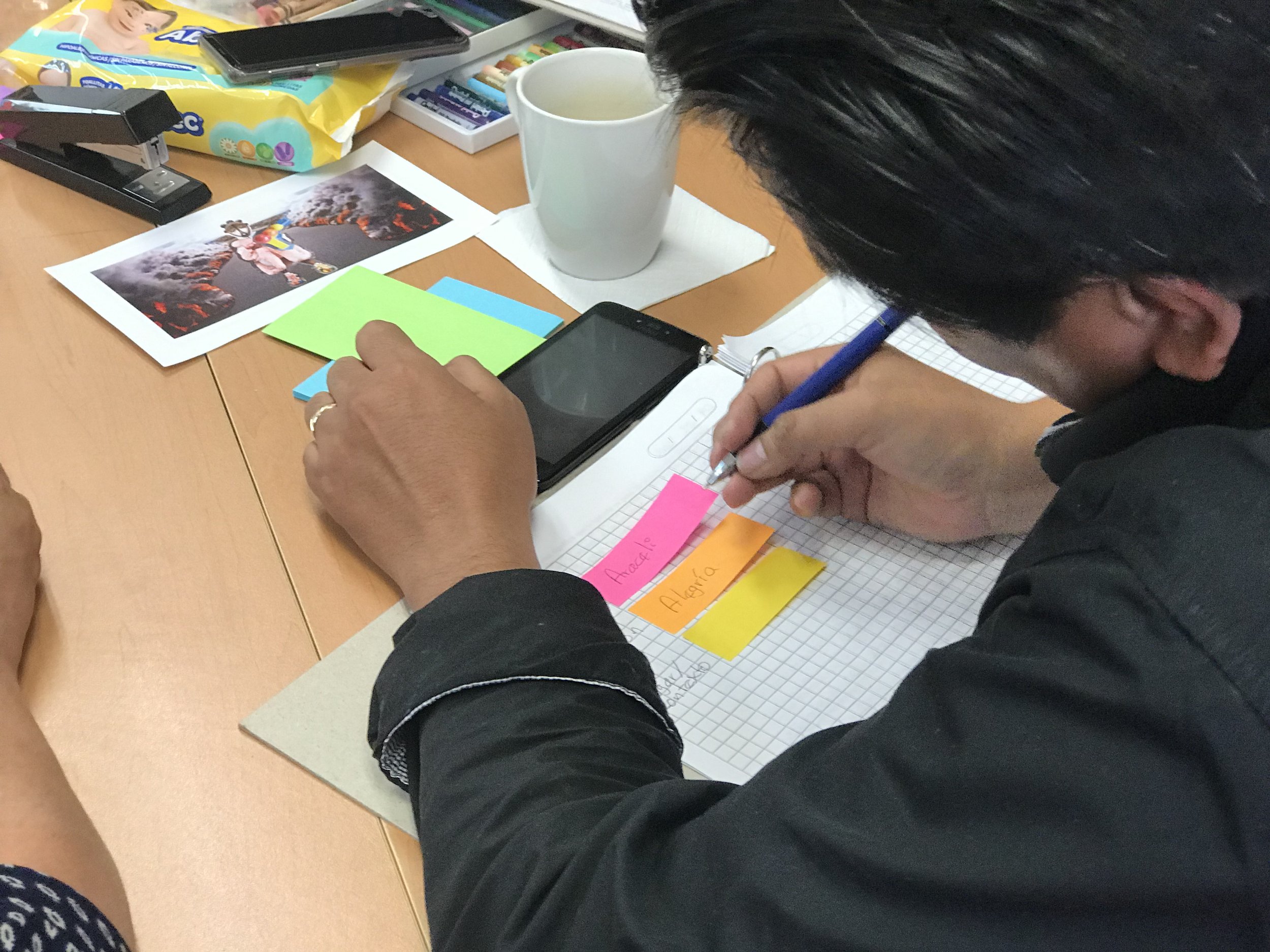This course gives you what you need to successfully facilitate storytelling in an inclusive way.
Inclusive Facilitation for Storytelling/in-person, 5 day course
This course will cover how to:
Understand the overall storytelling process and how to weave it together
Develop your facilitation skills in six different aspects of the storytelling process:
Encourage creativity through multiple forms of expression
Use story elements and story structure
Story production including digital techniques
Positive interpersonal and group dynamics
Reflective practice
Connecting all these aspects into a coherent process
Learning approach:
1) The course will provide an explanation of facilitation techniques, ‘tips and tricks’ and guidance on how to apply to these techniques to different contexts. You will learn from the proven approach of the trainer with storytelling as well as from the different styles and approaches in the group.
2) Using structured reflection on your own experience of facilitation, related to the course topics, you will learn from your own practice: what do you do well? Where would you like to develop further? How can you put these ideas into practice?
3) Gain practical experience applying the techniques covered in the course and get constructive feedback from the trainer and the rest of the group.
Price: £1600 Deposit of #200 required by 1 December 2022
**Up to three discounted places available for people based in the Global South, those working with small organisations, and for students. Discounted price is £900.**
Maximum participants: 15
What is included:
5 nights accommodation with breakfast and lunch provided at the Dartington Estate
course materials
access to an online platform for connecting with others
up to 5 rounds of detailed feedback on your facilitation by the trainer with additional feedback from the participants
an individual session with the facilitator to help you plan a storytelling process you can use in your own work
on-going membership in a network of others working with storytelling.
What you need: a phone/tablet/computer capable of connecting to the internet and enough capacity to install apps needed for recording and editing, an interest in and willingness to explore your own experiences of facilitation and storytelling. Prior experience with storytelling and facilitation is required.
Course dates and times: Monday 23 January 2023 to Friday 27 January 2023, 9:00-17:00 London time
Course location: Totnes, Devon, UK. Course will be held at the Dartington Estate, a 1200-acre estate promoting arts, ecology and social justice. Basic, hostel-style accommodation included; upgrades to accommodation possible on request.
Here is an outline of the course content:
Introduction
Understand the background to storytelling methodologies, and the range of different purposes for storytelling
Set your own specific learning objectives
Agree how to work as a group
Understand the six aspects of facilitating inclusive storytelling processes
Try out some creative and story-based techniques together
Block one (sessions 2-4): Facilitate creativity for storytelling
Learn to work with a full range of creative expression through a variety of exercises and techniques
Recognise different creative styles and needs, and relate these to forms of expression
Design creative processes that are inclusive
Choose and apply appropriate creative techniques for each stage of storytelling
Block two (sessions 4-6): Work with story elements and structure
Recognise how to facilitate story development through the use of story elements and structure
Practice multiple story iterations to develop stories
Understand how to make story elements and structure accessible to a diverse range of stories and participants
Develop confidence in providing feedback on story structure
Block three (sessions 7-8): Build positive group dynamics
Learn how to:
Create trust
Create a sense of being heard
Generate confidence in the storytelling process
Develop a shared understanding of a complex issue/problem
Deal with conflict and work with different viewpoints and tensions in a group
Deal with inappropriate behaviour
Block four (all sessions, and mains focus for session 9-10): Strengthen your critical reflection, adaptability and inclusiveness
Learn from examples of ethical challenges in past storytelling processes
Recognise and respond to social positions/identities/needs
Recognise and respond to contextual differences
Understand how to use language(s) to be inclusive
Practice critical self-reflection and use this to develop your facilitation approach
Block five (session 11-12): Learn how to facilitate story production
Learn facilitation techniques to help participants polish and produce stories
Understand the range of production techniques available and how to make these accessible and inclusive
Learn how to use digital techniques to support the story process
Block six (session 12): Integrate all the aspects of inclusive facilitation by designing your own storytelling process
Make a detailed design of a storytelling process that you plan to use
Give and receive feedback
Other courses that might interest you…



Course duration: 3 days or 6 3-hour weekly sessions